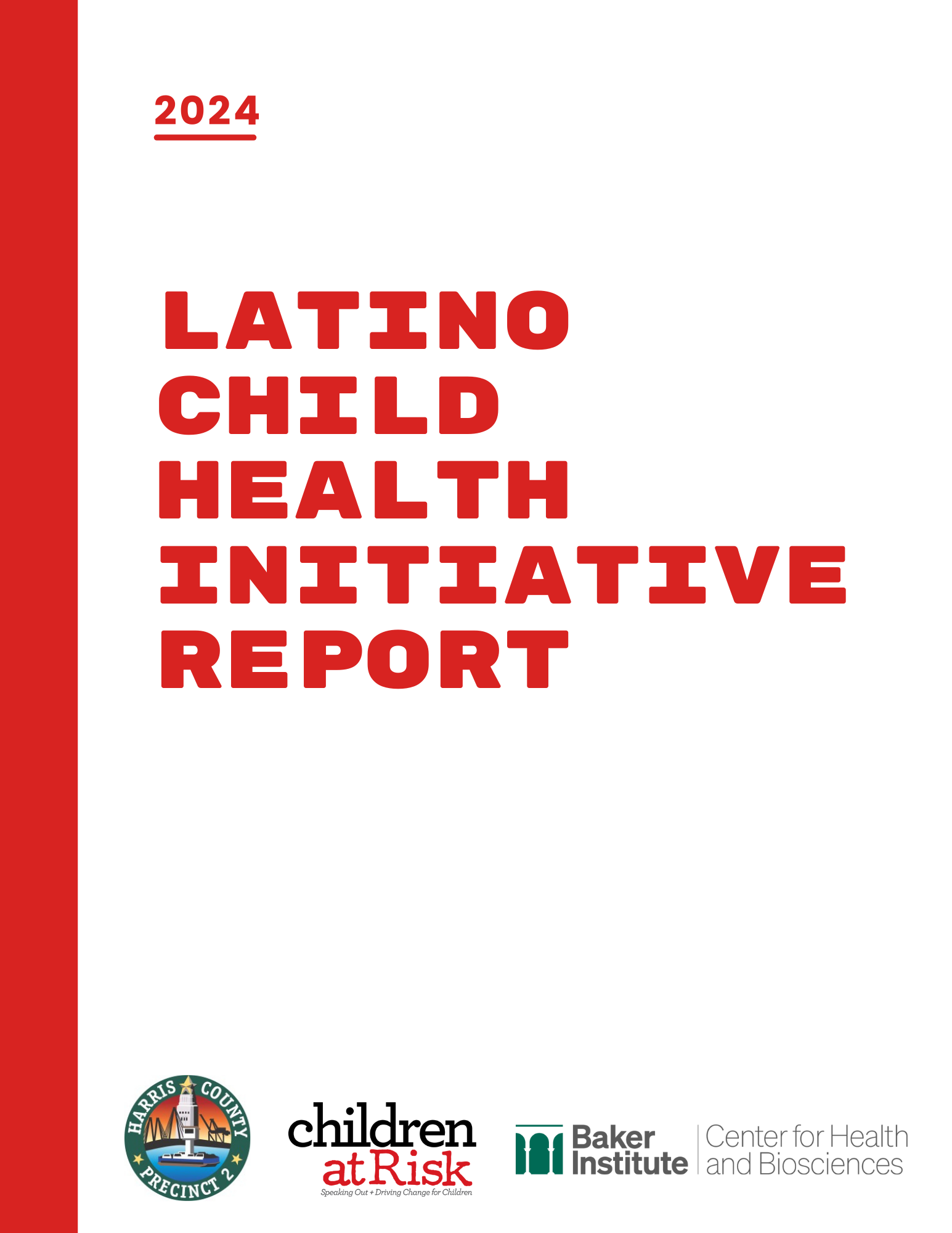In Texas, almost half of the population of children under the age of 18 are Latino, yet there has not been a concerted effort to address the particular health issues facing this population. Latinos account for 48% of the population in Harris County Precinct 2 and are a rising majority in Texas.¹ Latinos now make up the largest population in Texas at 40.2% in 2022.² Nearly one in five Texas children live in poverty, and Latino children are the most likely ethnic population to live in poverty. Despite the Latino community having high rates of labor force participation, 29% of Latino children live in poverty as of 2019.³ Despite this, Latinos face deep inequities in terms of healthcare and education. Around 34% of Latinos in Texas did not complete high school.⁴ Additionally, Latinos have a high risk of developing chronic diseases, yet they have less access to healthcare.⁵ Latino children are also most likely to be uninsured compared to other race or ethnic groups in Texas.⁶ As the Latino community continues to be the fastest-growing population in Texas, it is crucial to provide equitable health, education, and opportunities.
Research shows that a healthy population can not only spur economic growth but that healthy children are more likely to be successful in educational settings, which in turn can have a positive impact on their future economic opportunities. To have a healthy population, the necessary resources must be invested to drive community led interventions, and ultimately improve outcomes. Nationwide Children’s Hospital is leading the way across the country with an effort, Pediatric Vital Signs, which does just that. It measures child wellbeing and utilizes the data to improve overall outcomes. This research doesn’t just rely on traditional vital signs to assess children’s health but relies on eight metrics that measure the overall wellbeing of children with consideration to social determinants of health that are typically not addressed in traditional medical care.
In this report, CHILDREN AT RISK, in collaboration with Child Health Policy at the Baker Institute, investigates indicators that provide a holistic view of the health of Latino children in Precinct 2 of Harris County including type two diabetes and obesity, mental health, and kindergarten readiness. Each indicator examines key metrics to create an overall picture of the current status of Latino child health, ultimately identifying potential interventions to improve outcomes. The research found that Latinos have higher rates of type 2 diabetes and obesity and numerous barriers in accessing mental health services in the Houston area. There were also major gaps in the percentage of children identified as kindergarten ready, particularly for economically disadvantaged children. Barriers in accessing resources were found across all three indicators including: language barriers, immigration status, cultural bias, lack of insurance, food deserts, and the overall lack of resources available to the Latino community. This report aims to address major health disparities faced by the Latino child community in Houston and advocate for programmatic changes needed to mitigate negative health outcomes.
